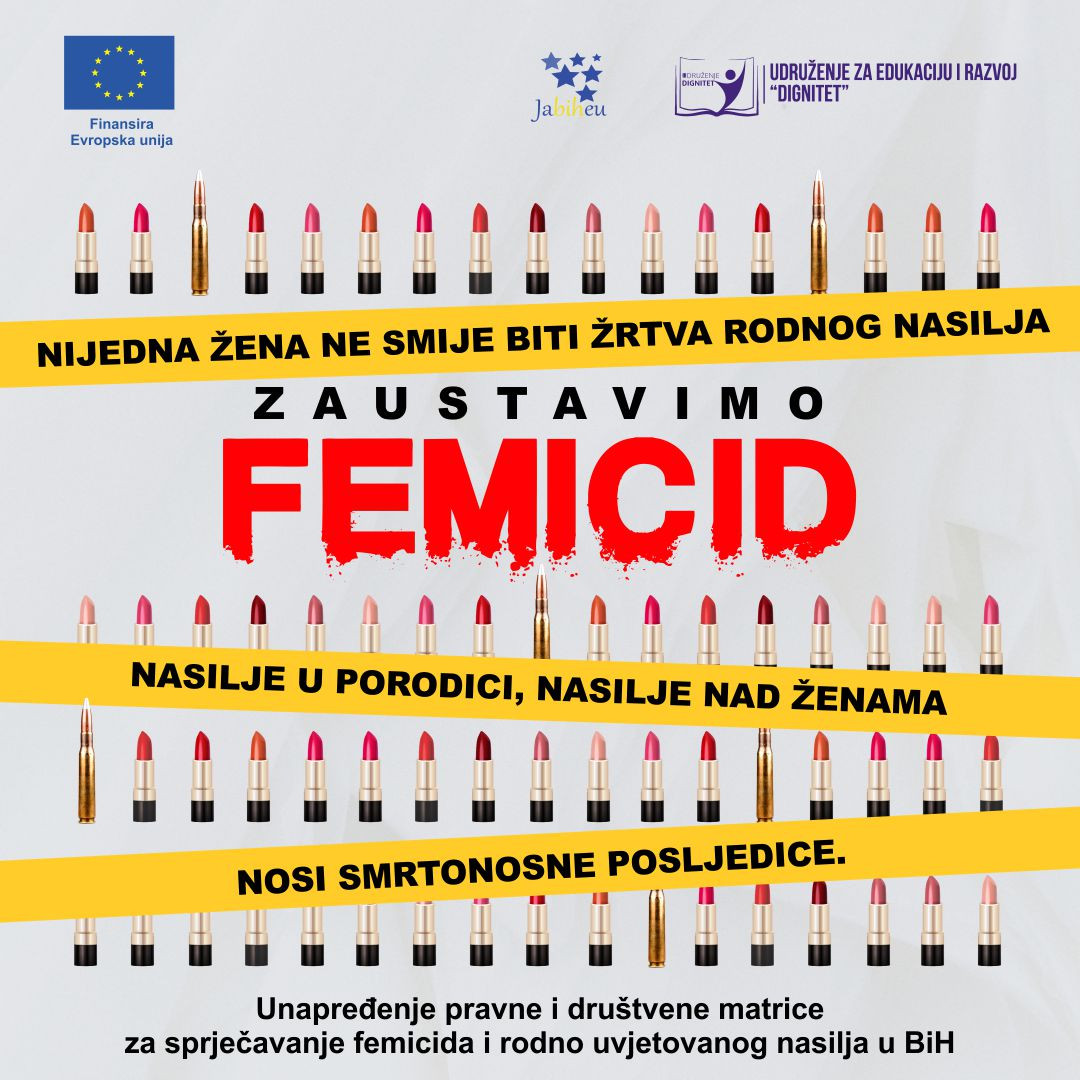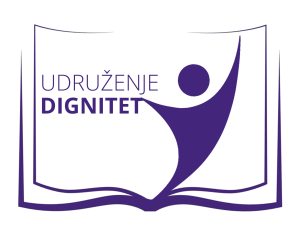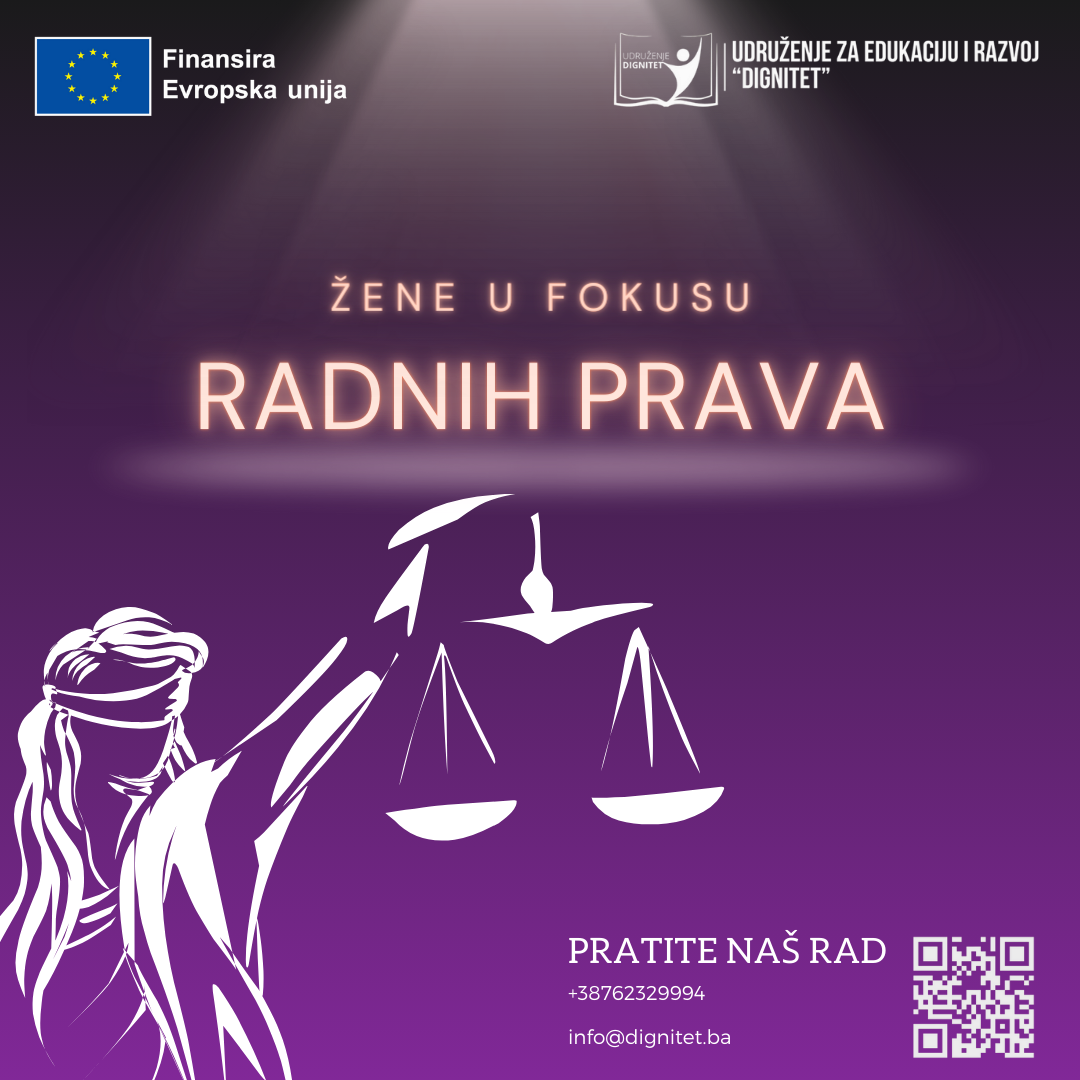TERMS OF REFERENCE
AN ASSOCIATION OF PROFESSIONALS CIVIL SOCIETY ORGANIZATION AND RESEARCHERS
CONTRACT NO: 2022/441-344
Advancing the Legal and Social Matrix to Prevent Femicide
and Gender-based Violence in Bosnia and Herzegovina
CONTRACTING AUTHORITY
EUROPEAN COMMISSION
BACKGROUND
Violence against women in Bosnia and Herzegovina (BiH) is widespread but often goes unnoticed until the final iteration – murder.
Although there are legal measures to deter and punish violence against women, experts warn that these are not adequate, a fact to which recent murders attest. In addition, femicide still lacks a universally agreed-upon definition, as well as recognition as a distinct criminal offence under BiH law.
Support services for victims of violence are primarily gender-insensitive and thus fail to meet the specific needs of women who are physically and sexually abused. Furthermore, courtroom statistics show that male perpetrators of violence against women are often given conditional or inordinately low prison sentences and that enforcing female victims’ right to compensation for damages and costs incurred as a result of violence is still the exception rather than the rule.
The cultural matrix of violence and sexist attitudes are still deeply rooted in Bosnian society. It is easy to see that the causes of femicide should be sought in the position of women and gender roles, where two-thirds of people believe that violence against women by partners, acquaintances, or strangers is expected and where the general opinion is that women should be subordinate to men. In addition to the general presence of stereotypes, prejudices, and attitudes about violence against women, the causes of femicide are often riddled with misconceptions. The most common misconception is that killing a woman happens suddenly in an extreme situation. It is also a misconception that women are killed only by dysfunctional men. BiH Agency for Gender Equality collected data from judicial institutions and non-governmental organisations that stated a total of 56 women were killed in BiH in a relatively short period from 2015 to 2019. Still, these killings were not treated as femicide. Even 48% of women in BiH have experienced some form of violence: sexual harassment, stalking, violence by an intimate partner or non-partner from the age of 15.
Bearing in mind the overall atmosphere in BiH, political, social and economic instability, inadequate media coverage as well as public misperception of femicide and overall, of gender-based violence, it is realistic to expect that these numbers may significantly increase, as well as that women somehow provoked the perpetrator, and that they “deserved” that murder.
The overall objective of the project
The overall objective is to protect the human rights and fundamental freedoms of women and girls and to challenge the cultural and social matrix of gender-based violence in BiH primarily by promoting elimination, prevention, and protection from femicide in support of the Council of Europe Convention on preventing and combating violence against women and domestic violence (Istanbul Convention).
Specific Objectives
The specific objectives of this project are to advocate for improved legislation, referral mechanisms, and changing legal norms and practices in the treatment of femicide.
Scope of work
The Association for Education and Development “Dignitet” is looking for an association of experts (from now on: the association), lawyers and experts as individuals who will apply for one or more lots for the realisation of activities: holding 10 professional classes live through the Digital Clinic and twenty (20) ) workshop in rural areas with CSO women and girls.
The subject of procurement is divided into 2 LOTs:
LOT 1: Holding 10 professional classes live through the Digital clinic,
LOT 2: Holding twenty (20) ) workshops in rural areas with CSO women and girls.
LOT 1: Holding 10 professional classes live through the Digital clinic
Description of tasks
1. Participation in meetings related to the preparation of lectures
2. Lecturers should prepare lectures related to the following topics:
– Recognizing gender-based violence,
– Empowering and encouraging women to speak freely and report violence – Help to raising the confidence of transgender women to speak freely about it,
– How to get out of the circle of violence,
– The necessity of reporting the existence of domestic violence,
– Women’s rights to equal protection in accordance with the law and equal access to justice
– Violence in the family and partner’s context,
– Homicide vs femicide, why is femicide more serious form of murder,
– How to find help, whom to contact,
– How to protect women, including transgender women, from violence and threats- what are the options,
– How to recognise threats and embrace opportunities,
3. Submission of written materials for topics that the lecturer will cover
4. The lecturers must process specific case studies with practical examples from practice and to provide professional advice and help to women in need,
5. Preparing a presentation
6. Providing professional assistance to participants,
7. Gives a written overview of the lecture, which consists of the following:
– brief job description;
– lecture dynamics;
– reporting on assumed obligations;
– writing conclusions and recommendations regarding the given lecture;
LOT 2: Holding twenty (20) ) workshops in rural areas with CSO women and girls.
Description of tasks
1. Participation in meetings related to the preparation of lectures,
2. Submission of written materials for topics that the lecturer will cover,
3. Lecturers should prepare lectures related to the following topics:
– Women’s human rights- what is feminism, and women’s activism,
– Femicide as the most extreme form of gender-based violence,
– How to react, prevent and report any form of gender-based violence- recognise manipulators and bullies,
– Advocacy and action planning
– How to develop practical skills to prevent/ stop violence
4. Gives a written overview of the lecture, which consists of the following:
– brief job description;
– lecture dynamics;
– reporting on assumed obligations;
– writing conclusions and recommendations regarding the given lecture
QUALIFICATIONS OF THE EXPERT, LAWYERS AND ASSOCIATION/ORGANISATION
General professional experience of experts proposed by the association/organisation
• At least 2 years of experts experience in the field of the profession
Experts Qualifications and Skills:
• Bachelor degree
• Excellent knowledge of spoken and written English;
• Excellent written communication, interpersonal and organisational skills
• Willingness to teamwork and cooperate with all actors
• Knowledge of EU and CoE communication protocols would be an asset
Duration of Mission and Reporting:
The duration of the mission will be up to 6 months in total.
Selection criteria:
The organizations/associations are required to provide the CVs of their experts and their organisation/association portfolio. The organizations/associations ‘ fee will be negotiated.
Open positions: 10
Workplace:
Bosnia and Herzegovina
REPORTING
The organisations/associations shall draw up reports and documents in accordance with the scope of the ToR. All reports shall be elaborated in Bosnian and English.
Note: All the documents produced must satisfy European Union visibility requirements, including the European Union logo, information on funding, and a disclaimer.
DEADLINE
The Applicants shall deliver their documents to email info@dignitet.ba until 29.04.2023.









